ADF STAFF
As the sun set on the final day of Ramadan, a muezzin called faithful Muslims to prayer. They solemnly prostrated themselves on prayer mats in a courtyard before enjoying the iftar, a dinner laid out on a communal table and eaten after sundown during Ramadan.
It is a tradition that dates back centuries, but the setting was unusual: the home of the Catholic archbishop of Ouagadougou in Burkina Faso. He had invited local Muslims to celebrate the holy day at his home.
“Together we must demolish walls and build bridges,” Cardinal Philippe Nakellentuba Ouédraogo said after the meal. “Demolish the walls of hate, misunderstanding, intolerance to build bridges. They came here tonight to build a bridge of brotherhood and tolerance for a reconciled world.”
In many countries, a scene like this would be unthinkable, but Burkinabe are proud of what they call their “multicultural brew.” It is not uncommon for Christians and Muslims to live side by side, attend the same schools and even intermarry. On holy days, members of one faith will walk next door to offer a lamb dish to neighbors of another faith.
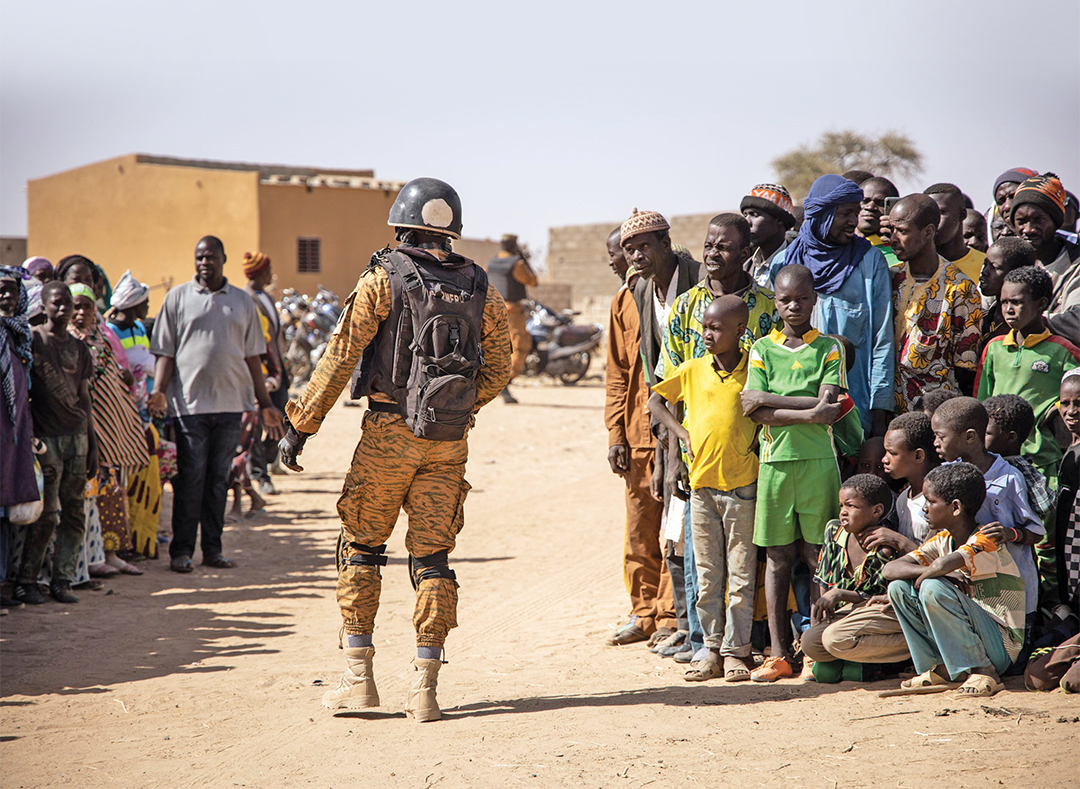
A common saying is: “One is human and Burkinabe before being Christian or Muslim.”
But that harmony has been shattered in recent years. Beginning in 2015, extremist groups crossing over from Mali took over swaths of the country’s north and northeast border regions, deploying bombs and rushing in on motorbikes to attack civilians. About 1.3 million people have been forced to flee their homes, a figure equal to 6% of the population.
A lull in the violence from mid-2020 to mid-2021 brought hope, but the reprieve proved to be short-lived. From May to August 2021, 335 civilians died due to armed conflict in the country, a 300% increase from the previous four months.
The low point of the crisis came in June 2021 when assailants on motorbikes stormed the villages of Solhan and Tadaryat, killing 174 people in two days. The brutality of the attacks in which terrorists burned down huts with people inside and fired at men trapped in mine shafts shocked an already shaken nation.
“Burkina Faso as a country is in the eye of the jihadist cyclone,” said Mohamed Maiga, director-general of the Mali-based security consulting firm Aliber Conseil.
In August 2021, the country’s ministers in charge of defense and security announced a new “holistic vision” for the national counterterror strategy. A purely military approach, they said, would not be enough to end the crisis. It was time to dig deep and get to the root of the problem.
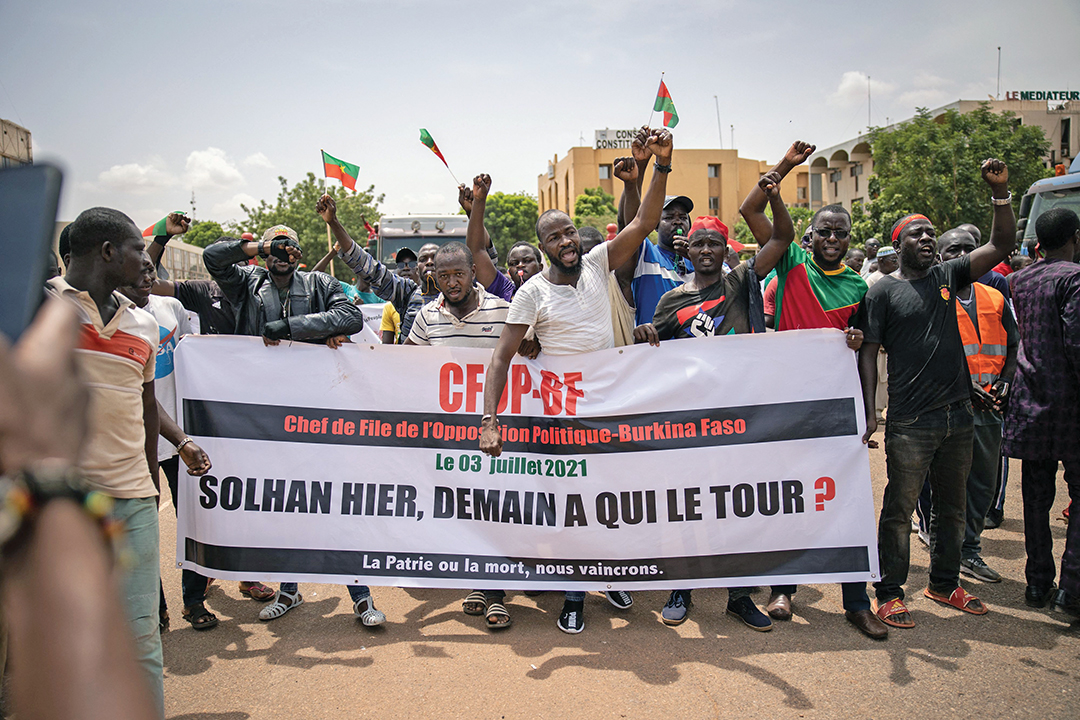
“The military response is important and necessary, but it is not sufficient,” said Minister of Security Maxime Koné. “We are going to jump-start our diplomacy. We will track those who support the terrorists. Those who threaten us are within our borders.”
These plans were upended in January 2022 when a group of military officers arrested the president and seized power in a coup. The security implications of this coup were still unknown as of early 2022.
Building National Resilience
The vast majority of terror attack victims in Burkina Faso are civilians. Since the beginning of the security crisis in Burkina Faso through mid-2021, there were 580 attacks by extremist groups, and 359 have been directed at civilians.
The violence has caused what is being called a “silent refugee crisis,” with hundreds of thousands of people living in makeshift shelters and fleeing across borders into Côte d’Ivoire, Ghana and Mali. More than half of those forced to flee have been children.
In the war-torn regions, life is permanently disrupted. During the most recent school year, 2,244 schools in Burkina Faso were closed due to terrorist attacks. The lack of structure leaves children vulnerable to extremist recruitment. Many young recruits report being drawn by rewards such as money, mobile phones or motorbikes.
“They are waiting to go back to school,” Abdouraouf Gnon-Konde, country director for the Office of the United Nations High Commissioner for Refugees, told Deutsche Welle. “School is the key to creating a future for these children.”
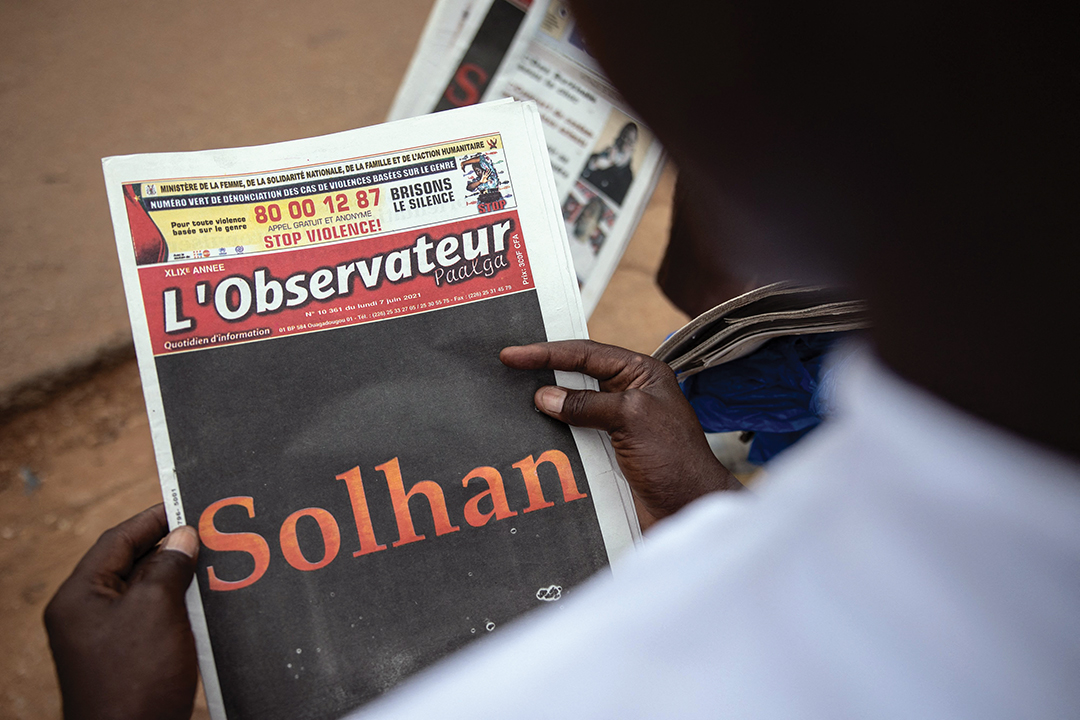
Before the coup, the nation was embarking on a five-year plan to address the terror threats and protect the most vulnerable. It included protecting schools, offering additional services to displaced people, deradicalization programs for extremists willing to lay down arms, and outreach to people in prisons at risk of becoming radicalized.
The country also has pledged to improve an often-overwhelmed court system to bring justice to terrorist suspects.
“In the five years to come we must construct a strong national resilience against the terrorist threat by building a foundation to support the capacity for governance and national security in order to protect people and property,” Koné said.
Short-Lived Success
In recent years, the Burkina Faso Armed Forces (FABF) has launched major efforts against terrorists. In 2019, thousands of Soldiers participating in Operation Doofu swept through the Nord, Centre-Nord and Sahel regions of the country to clear out terrorist enclaves. In 2020, a joint operation with Côte d’Ivoire took aim at the border region. Most recently, Operation Taanli in 2021 brought together Burkinabe and Nigerien forces resulting in huge arms seizures and the killing or capture of 100 terrorists.
But, too often, say observers, the success has been short-lived.
“All these operations allowed the locals to return to a relative state of calm,” wrote Moussa Banhoro, chief of the Burkina Faso early warning and intercommunal conflict resolution service. “However, the army has not been able to consolidate its gains. Because, following them, these zones have been the targets of attacks far more deadly than before the operations.”
The FABF has said it wants to change this with a strategy that will keep its forces closer to the most vulnerable people and train them in new counterinsurgency tactics designed to give them the upper hand.

“We need to refine and accelerate the transformation of national Armed Forces by reorganizing them structurally and territorially to make them more responsive and operational,” then-Brig. Gen. Gilbert Ouédraogo said as he took command of the Armed Forces in October 2021. “We are convinced that this reorganization is one of the imperative conditions for success in the fight against terrorism.”
The plan would include building gendarmerie bases in rural places that previously had been unprotected. There would be a renewed emphasis on training in skills such as international humanitarian law, countering improvised explosive devices, and nonconventional and special operations warfare.
The military also planned to invest in communications equipment and intelligence, surveillance and reconnaissance technology to support its troops.
“We had been in a peacetime posture for too long that used military regions as reservoirs of forces,” said Gen. Aimé Barthelemy Simporé, Burkinabe minister delegate for defense in October 2021. “Soon we will begin a reorganization to be as close as possible to our operational mission. We are going to build a training system that is as comprehensive as possible. We are going to train a lot more.”
Uncertainty Reigns
The FABF has faced accusations of abuse against civilians and extrajudicial killings. After the Solhan massacre, members of a volunteer defense group in the town complained that they called a military unit stationed nearby before and during the attack but received no help.
Abdoulaye Diallo, an assistant bus driver who survived the attack, spoke for many in the region. “I don’t trust the defense and security forces; they don’t do their job,” he told Al-Jazeera. “The country is being invaded by jihadists … [and] the crisis continues because the government is not able to fight.”
Soldiers complained they were woefully under-equipped for the counterterror fight. After an attack in Inata, where 20 Soldiers were killed in November 2021, the unit reported it had not received rations for two weeks and resorted to hunting for food. Coup leaders used such reports as a pretext to take power.
Koné said the “trinity” of the government, defense forces and the population must be in harmony.
“It will be a question of mobilizing the whole nation,” Koné said. “Because this struggle is beyond our political positioning, beyond our political and religious divisions. This is not just a question of the government, but it is a question of the whole nation.”
Many Burkinabe citizens are taking a wait-and-see approach in response to the political upheaval.
The mayor of the town of Dablo, where farmers have been unable to plant crops for three years due to unrelenting terror attacks, said people are yearning for security. “As long as security is not found, people cannot carry out an activity or go about their business freely,” said Dr. Ousmane Zango. “So we think that they must quickly organize themselves so that the population can regain peace of mind.”
Volunteer Defense Groups Can Help or Hurt
Government-Sanctioned Vigilantes Fight as Violence Grows
ADF STAFF
As the militant Islamist threat continued to spread out of Mali and into Burkina Faso, government authorities there turned to armed civilian vigilante forces to help restore security.
In January 2020, Burkina Faso’s parliament approved funding and training for the Volunteers for the Defence of the Fatherland (VDP).
“This law was voted unanimously by the parliament,” then-Defense Minister Moumina Cheriff Sy said, according to a Reuters report. “It shows that beyond our differences of opinion … we can be one when it comes to defending the homeland.”
The approach places the civilians under military control as auxiliaries in the hopes that they will free up national forces to conduct other operations, according to a report in The Defense Post. Volunteers for the VDP must be 18 and are recruited in consultation with local populations. They are trained for 14 days in weapons, discipline and human rights and then are given small arms and communications equipment. They also must undergo a “moral investigation.”
Among their functions are to provide surveillance, information and protection for local populations during an attack while waiting for security forces to arrive, Sy told Burkinabe news service Le Faso.
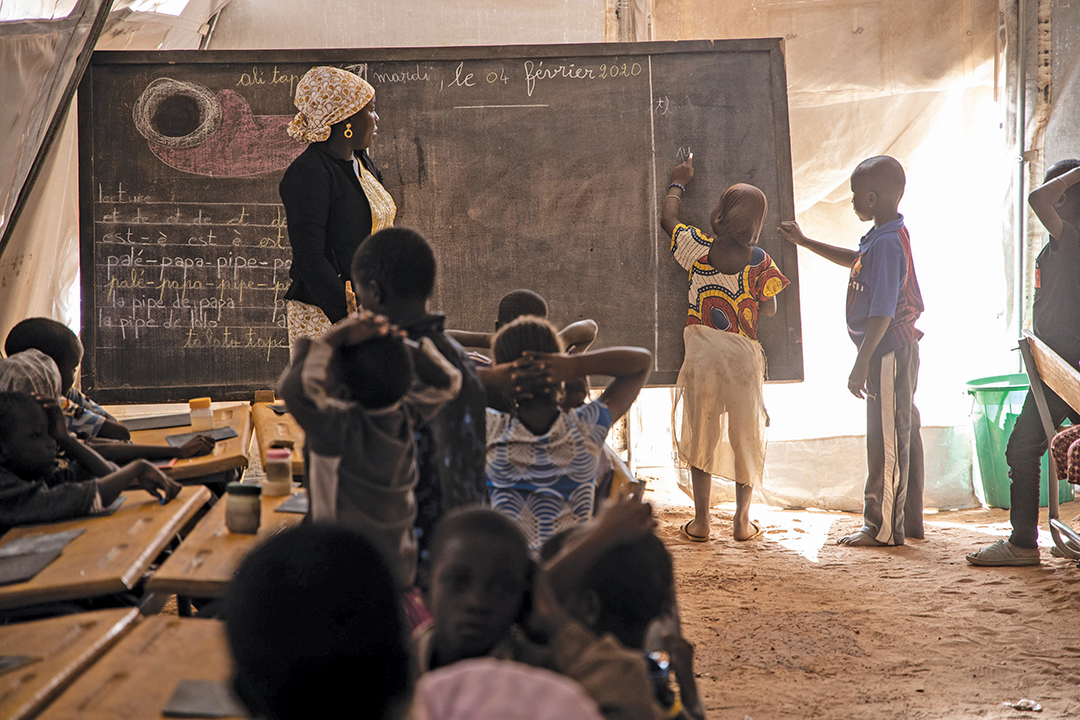
“It is not a question of making cannon fodder,” Sy told Al-Jazeera. “We want to prevent these volunteers from becoming militias.”
Some VDP members already have been killed by militants, including during an April 2021 attack in the town of Tanwalbougou, Gourma province, in the nation’s east. Heavily armed gunmen ambushed a patrol and killed three gendarmes and four volunteers, Anadolu Agency reported.
Dr. Daniel Eizenga, research fellow for the Africa Center for Strategic Studies, said Burkina Faso is trying to be creative and thoughtful about providing security in far-flung areas.
“What they’re really trying to do is integrate local militias that have provided some protection for their communities and have at times been in conflict with violent extremist organizations,” Eizenga told ADF. “They’re basically trying to formalize that militia force and do so in a way that will integrate them into the larger security forces structure for Burkina Faso.”
There are, however, legitimate criticisms. Some worry that arming civilians runs the risk of inflaming violent tendencies in the region or empowering civilians to pursue vengeance and retribution over protection and peace.
There is some evidence that these concerns are valid in Burkina Faso. A March 2021 review by Clingendael, the Netherlands Institute of International Relations, indicates that VDP recruitment discriminates against pastoralists and nomads, which tends to exclude many among ethnic Fulani communities. The report notes incidents of attacks and other abuses on Fulani civilians.
Whether Burkina Faso is successful with the VDP will depend on the strength of oversight and accountability measures, Eizenga said. Insurgent groups such as those plaguing remote areas of Burkina Faso — what Eizenga calls “spoiler insurgencies” — can persist for long periods. They tend to have little local support, but as long as they persist and can tap local resources, “they are perceived as winning,” he said.
Eizenga said that integrating local forces in remote areas that are hard to access by government forces offers “a potential long-term solution if done well and provided with the correct amount of oversight.”

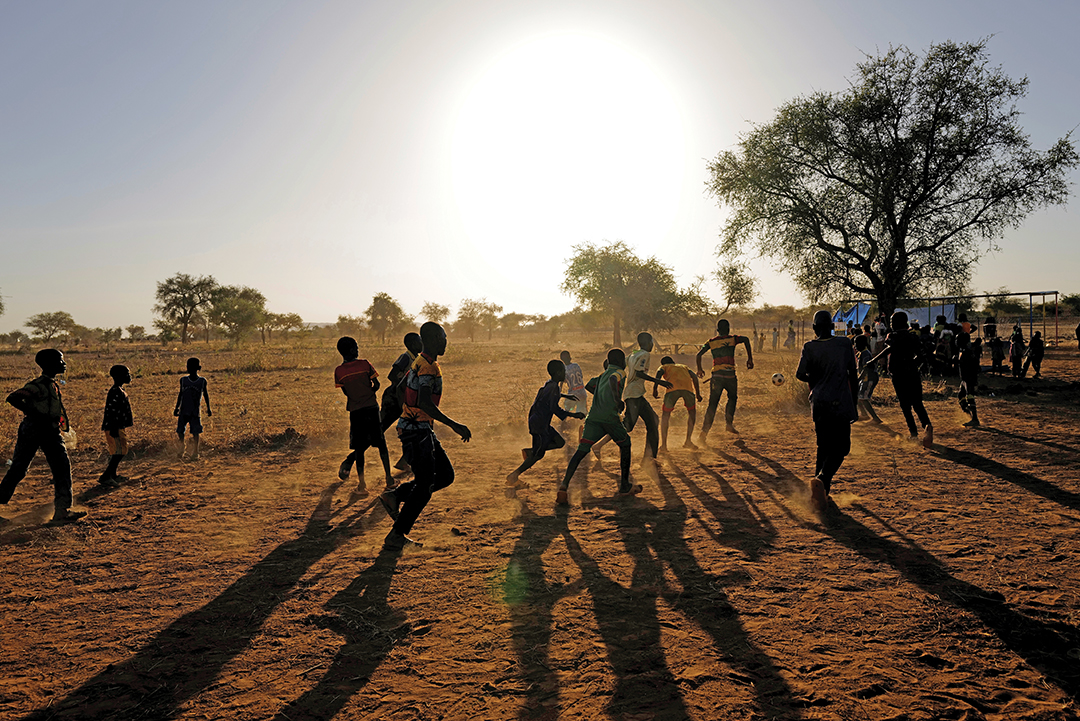
Comments are closed.